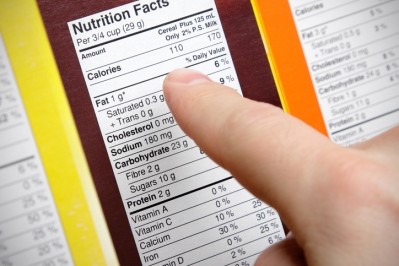Next-gen plant-based products: Protein digestion findings could inspire new product development - scientists

Conducted by researchers from China and US, a plant-based beef and animal beef were put through a simulated gastrointestinal model, and it was found that proteins and lipids were digested differently in both products.
One of the authors Professor David Julian McClements told FoodNavigator-Asia the huge movement towards plant-based foods for sustainability, health, and animal welfare was a reason for this study.
Plant-based meat analogues are designed to mimic real meat products and are typically formulated with plant proteins isolated from cereals and legumes, oilseeds such as sunflower and rapeseed, and dietary fibre for texture.
In contrast, real meat consists of animal parts with a few other minor additives such as salts.
At present, there is a relatively poor understanding of the gastrointestinal fate of plant-based meat analogues compared to real meat products.
“This knowledge is important because the digestion and absorption of these products impacts their nutritional profile and their impact on human health,” researchers wrote in Food Chemistry.
Meat samples
In this study, ground beef (Trader Joe’s) and plant-based ground beef (Gardein) were purchased from a local supermarket. The ingredients in the latter were water, textured soy protein concentrate, 2% or less of caramel colour, salt, canola oil, natural flavours, garlic powder, yeast extract, onion powder, and black pepper.
Researchers used a standardised in vitro digestion model (INFOGEST) to monitor differences in the structure, physicochemical properties, and digestibility of the meat samples as they moved through a simulated human gut from oral, stomach to small intestine.
Protein and lipid hydrolysis were calculated, and physiochemical properties like viscosity was measured.
Protein and lipid digestion
Protein digestion mainly occurs in the stomach and small intestine phases, while lipid digestion occurs in the small intestine.
Based on the measurements, proteins in plant-based meat are digested more rapidly in the stomach ,but less rapidly in the small intestine, compared to animal meat.
Around 15.8% and 69.8% of plant-based beef protein were digested in the stomach and small intestine phases respectively.
This is compared to real beef where 8.9% of the protein was digested in the stomach and 76.3% in the small intestine.
Researchers think this may have been due to the presence of dietary fibres as well as differences in protein type such as globular soy or fibrous beef proteins.
For lipid digestion, plant-based beef sample was significantly lesser than the real beef sample, probably also due to the presence of dietary fibres.
Previous studies have shown that dietary fibres can inhibit lipid digestion by trapping some of oil droplets or interacting with bile salts and lipase.
Viscosity
The plant-based beef sample resulted in a higher viscosity in the stomach phase, compared to the real beef, indicating the function of dietary fibre.
Previous studies have shown that dietary fibres are effective at increasing the viscosity of simulated gastrointestinal fluids, and may induce a higher satiety response, but further studies are required.
McClements, who is also Distinguished Professor at the University of Massachusetts and Adjunct Professor at Zhejiang Gongshang University said: “They are both digested fairly similarly, with some slight differences in stomach and small intestine. It will depend on the plant-protein used and the processing it receives.”
Future studies
As plant-based foods become more common in the diet, McClements advises consumers: “Make sure you do not have allergies to any proteins in the product. Watch the fat, carbohydrate, and salt content to make sure it is not too high. Eat fruits and vegetables, whole grains, and nuts in a plant-based diet.”
These findings of this study may facilitate the development of a new generation of plant-based meat analogues with improved quality and nutritional attributes.
This research was partly supported by funding from the Good Food Institute.
Because both real beef and plant-based beef are structurally and compositionally complex materials, researchers recommend future studies analyse simpler plant-based analogues containing less ingredients that may interfere with their digestion.
They added: “It will be important to carry out in vivo studies to assess any potential nutritional differences in consuming beef and plant-based beef products, such as the rate and extent of the absorption of different amino acids especially essential ones.
“It would be useful to carry out a more detailed chemical analysis of macronutrient digestion throughout the simulated GI tract, such as measuring the evolution of amino acids, peptides, free fatty acids, monoglycerides, diglycerides, and sugars throughout digestion,” they said.
According to McClements, the team is now fabricating a range of plant-based meat, fish, cheese, egg and milk products that simulate real ones, fortifying them with the required nutrients, and testing their quality attributes and nutrition effects.
Source: Food Chemistry
https://doi.org/10.1016/j.foodchem.2021.130439
“Digestibility and gastrointestinal fate of meat versus plant-based meat analogs: An in vitro comparison”
Authors: Hualu Zhou, David Julian McClement, et al.


















